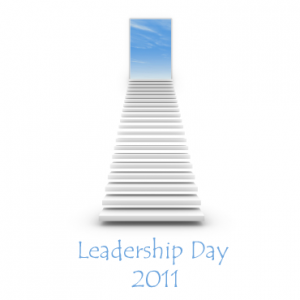This isn’t going to be much of a blog post. Sorry to disappoint right at the outset. I am intentionally posting this for two reasons. One – I need to set my thinking straight before I begin what I hope will be several blog posts in the next couple of weeks, and two – I need a bit of a disclaimer for those few who do happen into this space so they will know exactly where my delayed and scattered topics are coming from. Phil Macoun recently reminded me of the importance of intentionality in a recent post of his, so I’m approaching blogging this summer with that mindset.
Last summer, I purposefully engaged in a detour from work, or, more specifically, a summer detour in the form of a what I called my ‘detour bag‘. This summer I feel that I’m finally beyond the bulk of the processing about my Masters degree and I’d like to do some professional development over the summer. More specifically, I’d like to blog and re-acquaint myself with all those wonderful people who originally pushed my thinking way back when I started all this online pro-d years ago.
I have various blog posts cooking in my head and in half-written posts waiting for that publish button to be clicked. I will, however, honor my family as my first priority this summer so I’m not sure how much flow and continuity I’ll be able to create with my blog posts. I’ll be spending most of my days biking, hanging out at the lake, watching movies and attempting to fill the stomachs of my always-hungry boys. I do though, feel a need to read others’ posts, comment, write my own posts, and release thoughts out of my head to clarify. Here’s a list of what I intend to write about in the coming weeks:
- my own blog post inspired by Michelle Baldwin’s recent post, No More Rock Stars
- reflections on TEDxWestVancouverED
- thoughts about my first edcamp, #edcampwest at UVIC
- the Edmedia experience, including presenting in a lecture theatre, the Darth Fiddler experience and seeing/meeting the brilliant Helen Keegan
- the past school year and how being a former high school art teacher helped me figure out my grade five students
- the past school year and the incredible results of the inquiry project
- the past school year and being a mentor x3
- next steps and new changes in the Elementary Connected Classrooms project
- saying good-bye to a great principal, waiting to say hello to a new one and welcoming back a former mentor
Now that I’ve written the list, that’s a rather intimidating goal to work towards while I’m supposed to be hanging out with family and enjoying downtime! It also speaks to how much has happened in the last ten months and makes me understand the need to unpack it all.
Now if I only had an iPad so I could blog while relaxing at the lake…



